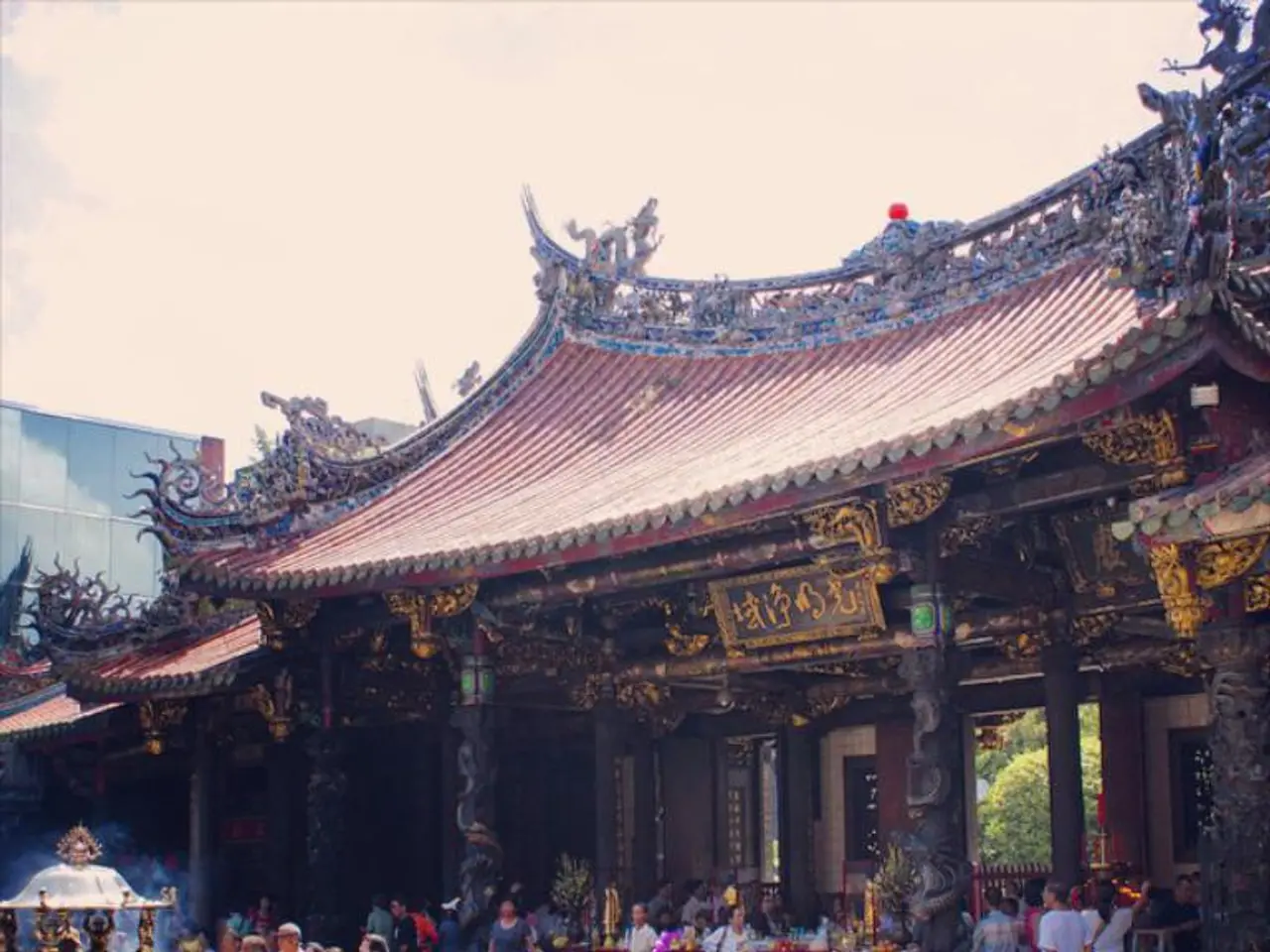After Seven Decades, Japan's 1955 Political System Falls Short in Obtaining House Majority
In a historic turn of events, the Liberal Democratic Party (LDP) and its ally Komeito lost their majority in Japan's House of Councillors for the first time in 70 years on July 21, 2025. This significant loss comes after two years of slack in the party's previously firm grip on the Japanese government.
### Domestic Policy Implications
The ruling coalition's failure to secure the required 125 seats (holding only about 122) means they no longer control the upper house, while already lacking a majority in the more powerful House of Representatives. This rare lack of majority in both chambers could lead to difficulty in passing legislation smoothly, potentially stalling key policy initiatives.
Prime Minister Shigeru Ishiba has vowed to stay in office and take responsibility, but internal party pressure may mount for leadership change, complicating governance. The main opposition Constitutional Democratic Party (CDP) and right-wing populist Sanseito have significantly increased seats, with Sanseito growing from 2 to 14 members. Sanseito’s nationalistic and hardline stance, often criticized as xenophobic, positions it to influence the legislative agenda and present an alternative to traditional conservative voters.
The government's perceived failure to handle inflation and the cost-of-living crisis likely contributed to voter dissatisfaction. Future domestic policies may need to address economic grievances more effectively to regain public trust, and the minority government may have to seek compromises with opposition factions to enact priority bills.
### Global Role Implications
Political instability and legislative gridlock at home could delay or complicate Japan's international negotiations, such as ongoing tariff discussions with the United States. A weakened ruling party might face challenges in maintaining a consistent and strong foreign policy stance.
The growing presence of the Sanseito party, with its “Japanese First” nationalistic agenda, could push Japan’s global posture towards a more right-leaning, conservative stance, potentially impacting Japan’s international cooperation and diplomacy, especially regarding immigration and regional relations.
Without a clear majority, the LDP may have to seek support from opposition parties, which could moderate or alter Japan’s global engagement strategies depending on which parties influence legislation. Japan's defence spending has increased towards the NATO benchmark of two per cent of GDP, but Trump's intentions to withdraw US troops from the region could pose a threat.
The loss of the LDP's majority in the House of Councillors likely signals a period of political instability, legislative challenges, and potential shifts in domestic policy priorities, while also introducing uncertainties in Japan’s global diplomatic and economic engagements. This marks a significant turning point in Japan's postwar political era.
References: [1] Reuters, 2025. "Japan's LDP loses majority in upper house election." Reuters. [2] The Japan Times, 2025. "Sanseito wins 14 seats in upper house election." The Japan Times. [3] The Guardian, 2025. "Japan's LDP loses majority in upper house election: analysis." The Guardian. [4] BBC News, 2025. "Japan's LDP loses majority in upper house election: what does it mean?" BBC News.
- The food industry may experience regulatory changes due to the new legislative landscape.
- Migration policies could undergo revisions as the political landscape shifts.
- The loss of a majority could hinder the implementation of education-and-self-development initiatives.
- Personal growth workshops might struggle to gain governmental funding with a divided parliament.
- Mindfulness programs could face policy changes as the ruling coalition is weakened.
- War-and-conflicts resolution strategies may have a harder time gaining traction without a strong hand in government.
- Productivity initiatives may face obstacles given the uncertainty of the new political landscape.
- Career-development opportunities might be affected by the ability to pass legislation smoothly.
- Policy-and-legislation collaboration between Japan and its international partners could slow down due to internal political squabbles.
- Car-accident insurance rates might change due to new laws introduced under the minority government.
- Politics becomes more dynamic and complex with potentially unstable alliances in the Japanese government.
- Online-education providers could see changes in funding or regulations due to revised policies.
- Job-search platforms may need to adapt to new employment trends that arise from the political shift.
- General-news outlets may cover more in-depth analysis of the new government and its policies.
- Crimes and injustices may see increased scrutiny as the government works to reestablish its authority.
- Accidents, including car accidents and workplace accidents, could lead to faster or slower legal proceedings depending on the political climate.
- Fires and emergency response efforts could be impacted by changes in legislation or budget allocations.
- Learning opportunities may become more diverse as the minority government seeks support from various parties.
- Goal-setting strategies for businesses and individuals could be affected by economic policies of the new government.
- Lifelong-learning initiatives could see growth as citizens seek to expand their skills in response to uncertain economic times.
- Skills-training programs might receive more or less funding depending on the political rivalries within the upper house.
- Sports leagues like football, soccer, baseball, hockey, golf, basketball, tennis, mixed-martial-arts, and racing could face changes in funding or regulatory oversight.
- Champions League, Premier League, American Football, NBA, Masters, Grand Prix, Horse Racing, and Serie A could see changes in sponsorships and regulations.
- Weather forecasting and climate change policies could be influenced by the new political parties in power.
- LALIGA and Serie A football could see changes in sponsorships and regulations due to the rise of nationalistic sentiments in Japanese politics.
- NCAAs sports, including basketball, baseball, and football, could see changes in Japan's participation and funding due to the new political climate.




